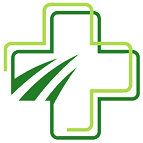The circulatory system has tens of thousands of arteries and veins, which both transport blood in the body. While the arteries transport blood throughout the body, the veins do so back to the heart. Often, healthy veins are invisible; however, some venous conditions can make your veins swell and become more obvious under the skin.
Varicose veins are huge, twisted veins common in the ankles and legs. Most people think of varicose veins as purely a cosmetic concern. But serious varicose veins can negatively affect your legs’ blood circulation. Thankfully, varicose vein treatment in Newberry, SC, is available. A vein specialist can diagnose and treat varicose veins.
Addressing Varicose Veins with Lifestyle Changes
Some varicose veins do not present symptoms. However, some people have to deal with bothersome symptoms that can include itching, swelling, muscle cramps, and pain. Whether you experience symptoms or not, varicose veins are not unattractive. A vein specialist can perform a comprehensive examination as well as discuss your symptoms and medical history.
For some people, making lifestyle changes can help reduce the appearance of varicose veins and their symptoms. These changes include not eating salty foods, exercising regularly, elevating the legs when at rest, wearing compression stockings, and maintaining a healthy weight. Such steps can improve the flow of blood to and from the legs, decrease water retention, and help reduce vein swelling. These habits can also be helpful in preventing varicose veins from growing.
Undergoing Radiofrequency Ablation
If your varicose veins do not respond to lifestyle changes and conservative treatment, you can choose radiofrequency ablation or RFA. But your dentist will have to determine whether or not you are a good candidate for this treatment.
RFA can safely and effectively treat varicose veins. It’s a minimally invasive procedure that requires little to no downtime. During the procedure, a thin tube is inserted into your affected vein. This vein is then gently heated using an electric current. The heat damages the vein permanently and stops blood from flowing into it. In general, the procedure takes less than one hour.
After RFA, your doctor may require you to wear compression stockings for around one week. In the weeks after the procedure, your varicose veins are expected to disappear along with your symptoms.
Varicose veins can be uncomfortable and embarrassing, but you do not need to live with them. If you are concerned about your varicose veins, schedule an appointment with a vein specialist as soon as possible.


